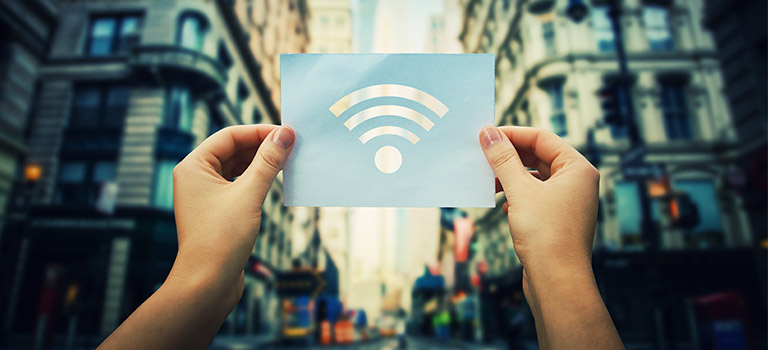WiFi is a lot like water. It is available almost everywhere and probably should be free. Unfortunately, a lot of times it is not safe to drink free water. Water that is sourced from a stream might be dirty, and unless you have a water purification system, it is not a good idea to drink much of it. Water from the ocean might be too salty. Avoid water from a sewer at all costs.
WiFi can also be unsafe, especially if it is free and public.
The difference between Ethernet and WiFi
When people use Ethernet, safe and secure internet access is much more certain. With a wired Ethernet connection, people must physically go to the source if they want to infiltrate the network. In contrast, a wireless network system means a person merely has to be within the reach and range of the WiFi to connect. Upon connecting, you are placing your devices into a network that are likely not secure. There are many attacks you are vulnerable to when you log in.
Man in the Middle Attacks
A Man in the Middle Attack is an attack in which an attacks places himself in between point A (your device) and point B (your connection spot). The attacker intercepts the information, effectively eavesdropping. Therefore, it is not wise to log into your bank account, check emails, or view any sensitive information while connected to public WiFi.
Malicious Software and Honeypots.
Within the unprotected network, there are a plethora of opportunities for an attacker to hide Malware. Often, hackers will find vulnerabilities and code in malicious software. Other times, they will set up their own fake WiFi hot-spots. These fake hot-spots impersonate legitimate networks in hopes that someone will connect. From that point on, your device is fair game for Malware.
How can you protect yourself?
First off, one of the safest ways, as we have covered before, is get a Virtual Private Network (VPN). A VPN encrypts whatever activity and sends it out via a separate IP address. In other words, it masks your activity so you can be anonymous, even on a public network.
If a VPN costs too much money, at least make sure to never connect to an unprotected Wifi. Make sure the network requires you to type in a password. Additionally, try to verify that the network is secured and legitimate.
Tags: Best cybersecurity practice, Cybersecurity, Ethernet, Malicious Software, Malware, Man in the Middle, Network, Password, Public WiFi, Security, Threats, Virtual Private Network, VPN, WiFi


